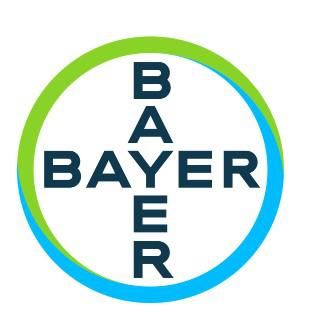BAYER AG

🇩🇪Germany
- Country
- 🇩🇪Germany
- Ownership
- Public
- Established
- 1863-08-01
- Employees
- 99.7K
- Market Cap
- $30.1B
- Website
- http://www.bayer.com
Finerenone Cuts Heart Failure, Death Risk in Clinical Trial
Finerenone reduced heart failure events and cardiovascular death in HF patients with mildly reduced or preserved ejection fraction. The trial, led by Brigham and Women's Hospital and funded by Bayer, showed fewer HF events and cardiovascular deaths in the finerenone group compared to placebo, with higher rates of hyperkalemia. Results were presented at the European Society of Cardiology Congress 2024 and published in the New England Journal of Medicine.
Sustained disease control with aflibercept 8 mg: a new benchmark in the management of ...
JFK, PL, CCW, TYW, XZ, PMW, SL, LB, ZH, SF, KWC, KR, and SS have various consulting roles, advisory board memberships, or research support from numerous pharmaceutical and medical technology companies.
Elinzanetant Phase III Data Published in The Journal of American Medical Association (JAMA)
Elinzanetant, a dual NK-1 and 3 receptor antagonist, showed efficacy and safety in Phase III OASIS 1 and 2 studies for treating moderate to severe VMS in menopause, reducing VMS frequency and severity, and improving sleep disturbances and quality of life.
Related Clinical Trials:
Bayer Initiates Phase II Study of Soluble Guanylate Cyclase Activator (BAY3283142) in Patients with Chronic Kidney Disease
Bayer starts Phase II ALPINE-1 study of BAY3283142, an sGC activator for chronic kidney disease, aiming to provide a new treatment option for cardiovascular diseases.
Efficacy and Safety of Elinzanetant in Treating Menopause-Related VMS: Insights from Phase III OASIS Studies
Elinzanetant, a dual NK-1 and 3 receptor antagonist, showed efficacy and safety in treating moderate to severe VMS associated with menopause in Phase III OASIS 1 and 2 studies. It significantly reduced VMS frequency and severity, improved sleep disturbances, and menopause-related quality of life, with a favorable safety profile.
Related Clinical Trials:
Bayer submits New Drug Application to U.S. FDA for Elinzanetant, a Non-Hormonal Treatment for Menopause-Related Hot Flashes
Bayer submitted a New Drug Application to the FDA for elinzanetant, a non-hormonal treatment for menopause-related hot flashes, based on positive Phase III OASIS studies. Elinzanetant significantly reduces VMS frequency and severity, improving quality of life with a favorable safety profile.
Bayer Submits New Drug Application to U.S. FDA for Elinzanetant for the Treatment of Moderate to Severe Vasomotor Symptoms Associated with Menopause
Bayer submitted a New Drug Application (NDA) to the U.S. FDA for elinzanetant, an investigational compound for treating moderate to severe vasomotor symptoms (VMS) associated with menopause, based on positive results from Phase III OASIS 1, 2, and 3 studies. Elinzanetant, a non-hormonal option, significantly reduced VMS frequency and severity with a favorable safety profile, marking a milestone in addressing women's health needs globally.
Trends in biosimilars: Regulatory approvals in 2024
The biosimilars market is expanding, with the global market projected to hit $43.8 billion by 2024 and exceed $100 billion in a decade. Recent FDA and EMA approvals include biosimilars for Johnson & Johnson’s Stelara and Bayer’s Eylea, following patent expirations. Notable approvals include Pyzchiva, Ahzantive, Yesafily, Opuviz, Hercessi, Selarsdi, Wyost, Jubbonti, Simlandi, and Uzpruvo, targeting various conditions and expected to launch by 2025.
Precision Medicine Market Size, Share, Trends, Growth
The precision medicine market, valued at $73.11 billion in 2023, is projected to grow to $118.08 billion by 2028, driven by rising cancer prevalence and strategic collaborations. It segments by technology, application, and end-use, with major players including Roche, Pfizer, and Novartis.
© Copyright 2025. All Rights Reserved by MedPath
